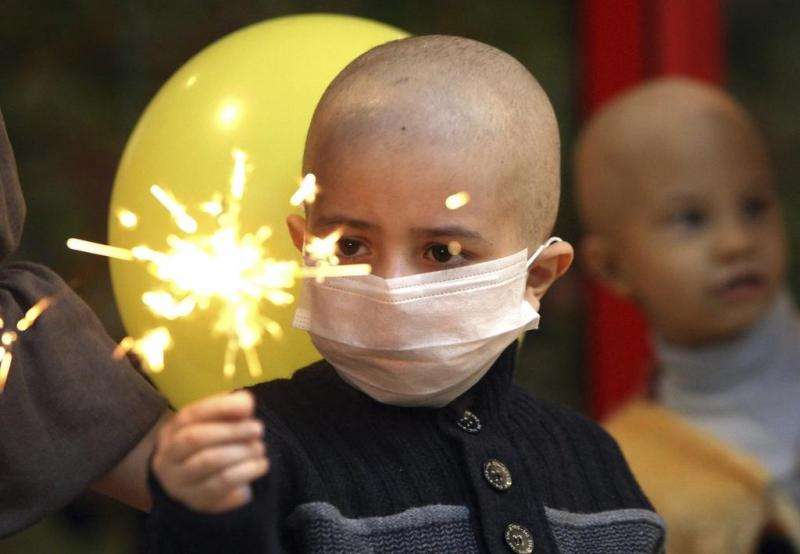Research proposes new way to reverse resistance to chemotherapy

A serious medical problem that oncologists face is multi-drug resistant cancers. In order to address this issue, Guillermo Aquino-Jarquín from the Children's Hospital Federico Gómez of Mexico, seeks expression profiles and characterization of small molecules that regulate proteins involved in multi-drug resistance, thus reversing their negative effects.
In Mexico, out of a hundred detected cancers, 71 percent are leukemia, a variant of blood cancer that can occur in children. Of this, an percentage receives chemotherapy and regains health. However, the body of some patients refuses treatment.
In order to find a solution to this complication, the researcher analyzes small molecules of 21 to 23 nucleotides in length called microRNAs, which regulate gene expression in various organisms. They play a central role in various biological processes, including development, differentiation, apoptosis (cell self-destruction), cell proliferation. Interference with microRNA function can cause various cancers such as childhood acute lymphoblastic leukemia (T-ALL).
Among the different types of cancer, acute leukemia has the highest mortality and morbidity in Mexico. This disease is often resistant to chemotherapeutic agents.
Multi-drug resistance genes are associated with high levels of expression of one or more types of ABC transporter proteins, among which the glycoprotein gp-170 stands out. It is encoded by the ABCB1 gene. This protein normally secretes toxic agents generated by the cell and when overexpressed, acts as a "ejector pump" of chemotherapeutic agents, removing the drug and leaving the cancer cell intact.
"To distinguish expression patterns associated with the diagnosis, prognosis and potential therapeutic interventions among different types of leukemia, it is necessary to conduct an analysis of the expression of microRNAs in the whole genome in normal cells and those under a pathological condition. Thus, in addition to knowing the overall pattern of transporter proteins, once identified, the arrangement of microRNA that could regulate its expression is obtained," says the researcher in Medical Sciences.
In the human genome, there are about 50 genes encoding ABC proteins and 50 different types of conveyors divided into seven subfamilies based on the gene structure and membranes of different amino acids. The purpose is to know if there are other genes that have important functions in the process of resistance to chemotherapy and then figure out how to reduce their expression.
For now, all analyses have been in vitro with cultured cell lines derived from pediatric patients with acute lymphoblastic leukemia. In tests, they have also received the support of the Juarez Hospital of Mexico, to measure the flow of expulsion of proteins.
If researchers find new microRNA involved in resistance to chemotherapeutic agents, the expression profile of individual patients would be needed to correlate the expression level of all microRNAs with the level of the carrier proteins . This will help in preventing the use of drugs that facilitate increase in ejector pumps inside the body's cells.



















